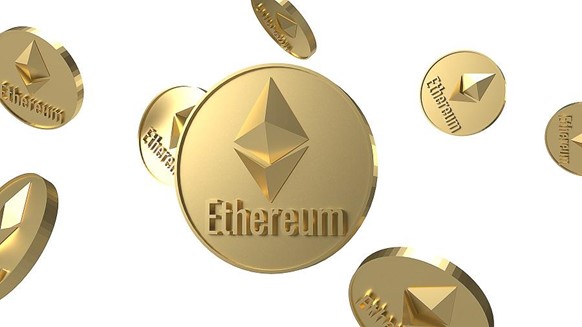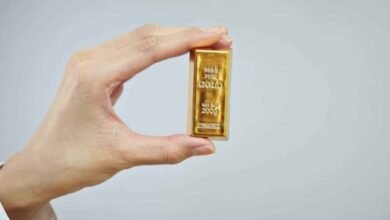4 Things You Should Know Before Investing in Ethereum

As a rule of thumb, if you’re planning to invest in crypto, you need to do your diligence and learn as much as you can about each coin before adding it to your portfolio. That should help you minimize risks as much as possible, stay away from scams and make smart investment decisions. Even if you decide to invest in digital currencies that have a proven track record of increasing their value over time and being financially lucrative, it’s still important to do your research. Market volatility is not something to play around with, and no crypto is exempt from risks. Case in point – Ethereum.
At the moment, Ethereum ranks second in the crypto hierarchy by market cap and popularity, after the undisputed leader, Bitcoin. It’s also the largest altcoin on the market, so it’s no surprise that both institutional and individual investors have taken a particular interest in it. The coin is listed on all major exchange platforms, so people can easily buy Ethereum with credit card, or using other payment methods provided by the exchange.
But reputation, availability and ease of access don’t remove the necessity of research. Ethereum, just like all other cryptos out there, is a complex system that comes with its own particularities and is subject to the cycles of growth and decline that govern the cryptocurrency industry. That’s why you need to tread carefully and familiarize yourself with this sought-after asset before you dive in.
This article is going to make your task easier by providing you with the most relevant information about the altcoin leader, so you can start your investment journey on the right foot.
What is Ethereum?
First thing first, you need to understand what Ethereum is about because, despite what some people believe, it’s not just another coin swelling the ranks of digital currencies. Ethereum was invented by programmer Vitalik Buterin alongside a team of developers in 2015, a few years after Bitcoin started to gain traction.
Buterin drew inspiration from the concepts popularized by Bitcoin, but he envisioned a system that could do a lot more than what Bitcoin offered. Despite the benefits it provided and its rising popularity, Buterin believed Bitcoin had limited functionality as it could only be used for digital payments or investments. So, he came up with the idea of a platform that would expand on Bitcoin’s principles, and that idea eventually materialized into Ethereum.
Just as its founder describes it, Ethereum is a blockchain with a built-in programming language. In other words, Ethereum functions as a decentralized platform powered by blockchain technology that has its own native cryptocurrency but can also be used by developers to create a host of other decentralized applications. By comparison, the Bitcoin network was designed to serve only one purpose: to support the Bitcoin cryptocurrency.
Ethereum use cases
The fact that Ethereum can do a lot more than Bitcoin and other cryptos sets the project apart from its peers. Obviously, since Ethereum is a decentralized public ledger, people can buy and sell Ethereum and use it as a method of payment, just as with any other crypto out there. They can also purchase Ethereum and hold onto it, turning the asset into a viable investment instrument.
But what’s truly special about Ethereum is its smart contract functionality. This allows developers to build other crypto projects and applications on top of Ethereum’s blockchain, expanding its use cases considerably. These applications range from cryptocurrencies like Chainlink and XRP to exchange platforms, decentralized lending platforms, crypto-based games and NFTs. Axie Infinity, Compound, Maker, Aave, Decentraland and Uniswap are just a few examples of projects built on the Ethereum network. So, Ethereum use cases go far beyond cryptocurrency and continue to expand as the platform keeps evolving.
Ethereum vs Ether
A lot of people get confused by crypto terminology, especially if they’re not familiar with the lingo used by the crypto community. The Ethereum–Ether dilemma is a good example of that. Strictly speaking, Ethereum and Ether (ETH) are two completely different things. The first refers to the blockchain platform, while the other refers to the native cryptocurrency built on top of it. However, people use these two terms interchangeably, hence the confusion. So, when someone says they’re investing in Ethereum, what they actually mean is they’re buying and holding ETH coins.
Ether is also used by developers to gain access to the Ethereum network. Anyone who wants to use the system and its services is required to pay a fee, also known as gas, and these payments are made in ETH. Think of it as purchasing a ticket to go on a train ride, and the currency you use to pay for the ticket is Ether.
Ethereum upgrades
Ethereum established itself as a powerful contender from the get-go, but it had to evolve in order to maintain its position at the top. The network has gone through numerous upgrades over the years meant to improve scalability, security, and sustainability. The recently-completed Merge is without a doubt the biggest upgrade to the software since its launch in 2015. This update implied a major change in Ethereum’s protocol, switching from a proof-of-work (PoW) mechanism to a proof-of-stake (PoS) model. Basically, miners were replaced with stakers and the network’s energy consumption was dramatically reduced.
With the Merge complete, developers are now focusing on the next upgrades that are going to address other issues and bring further improvements to the network. Crypto enthusiasts are most excited about the Shanghai fork that is scheduled to take place in March. This will allow users to withdraw the assets they’ve staked to become validators and will probably have financial implications given that a large number of coins will be released into circulation.
Wrapping up
Ethereum is without a doubt one of the most exciting and powerful cryptocurrencies on the market at the moment, but it’s also a very complex system with vast applicability. So, if you intend to invest in Ethereum, you need to learn all its ins and outs and keep a close eye on its evolution.





